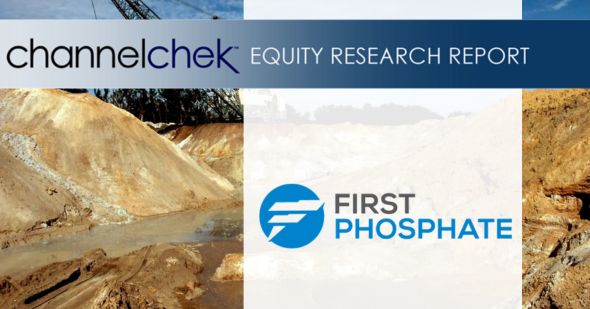
Monday, December 01, 2025
Mark Reichman, Managing Director, Equity Research Analyst, Natural Resources, Noble Capital Markets, Inc.
Hans Baldau, Associate Analyst, Noble Capital Markets, Inc.
Refer to the full report for the price target, fundamental analysis, and rating.
Initiating Coverage with a price target of US$1.55 (C$2.15). First Phosphate Corp. (CSE: PHOS; OTCQX: FRSPF) is a Québec-based mineral development and cleantech company advancing an onshore, vertically integrated, mine-to-market Lithium Iron Phosphate (LFP) battery materials supply chain for North America. The company intends to supply purified phosphoric acid (PPA) and iron-phosphate material for use in LFP batteries. Target markets include grid storage, data centers, robotics, mobility, and national security applications.
Flagship Asset. Bégin-Lamarche anchors the company’s growth strategy and represents one of the most advanced high-purity igneous phosphate deposits in North America. The most recent Preliminary Economic Assessment (PEA) outlines a 23-year open-pit operation producing ~900,000 tonnes per year of 40% phosphate concentrate, with throughput ramping from 10,300 tonnes per day (tpd) initially to 20,800 tpd by Year 5. Located roughly 70–85 kilometers (km) from the deep-water Port of Saguenay and about 50 km from rail facilities, Bégin-Lamarche sits at the core of a compact logistics corridor.
Get the Full Report
Equity Research is available at no cost to Registered users of Channelchek. Not a Member? Click ‘Join’ to join the Channelchek Community. There is no cost to register, and we never collect credit card information.
This Research is provided by Noble Capital Markets, Inc., a FINRA and S.E.C. registered broker-dealer (B/D).
*Analyst certification and important disclosures included in the full report. NOTE: investment decisions should not be based upon the content of this research summary. Proper due diligence is required before making any investment decision.


